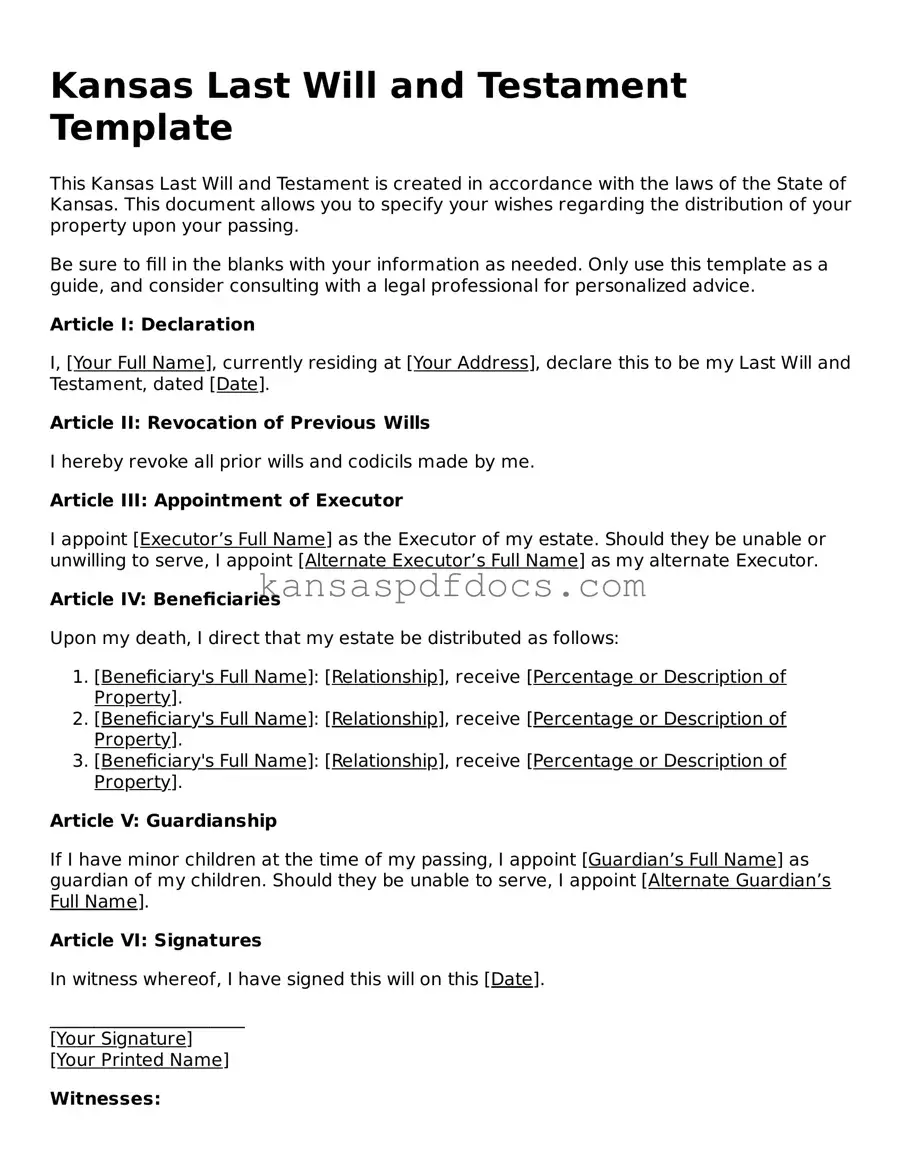Valid Last Will and Testament Template for Kansas State
A Last Will and Testament form is a legal document that outlines how a person's assets and affairs should be handled after their passing. In Kansas, this form allows individuals to specify their wishes regarding the distribution of property, guardianship of dependents, and other important matters. Understanding this form is essential for ensuring that your intentions are honored and that your loved ones are taken care of according to your wishes.
Access This Form Now

Valid Last Will and Testament Template for Kansas State
Access This Form Now
Your form isn’t ready yet
Edit and finalize Last Will and Testament online without printing.
Access This Form Now
or
Get PDF Form
